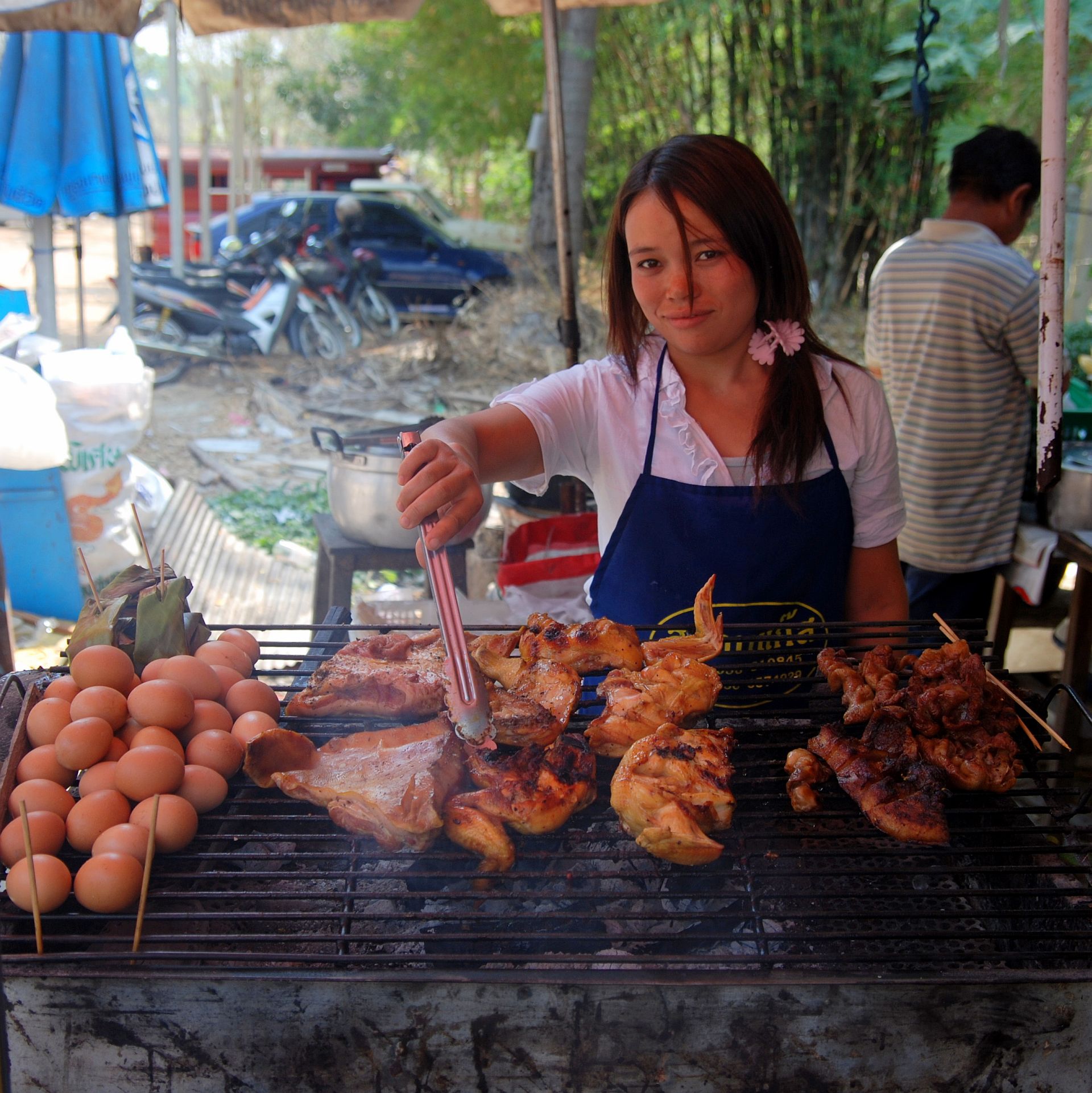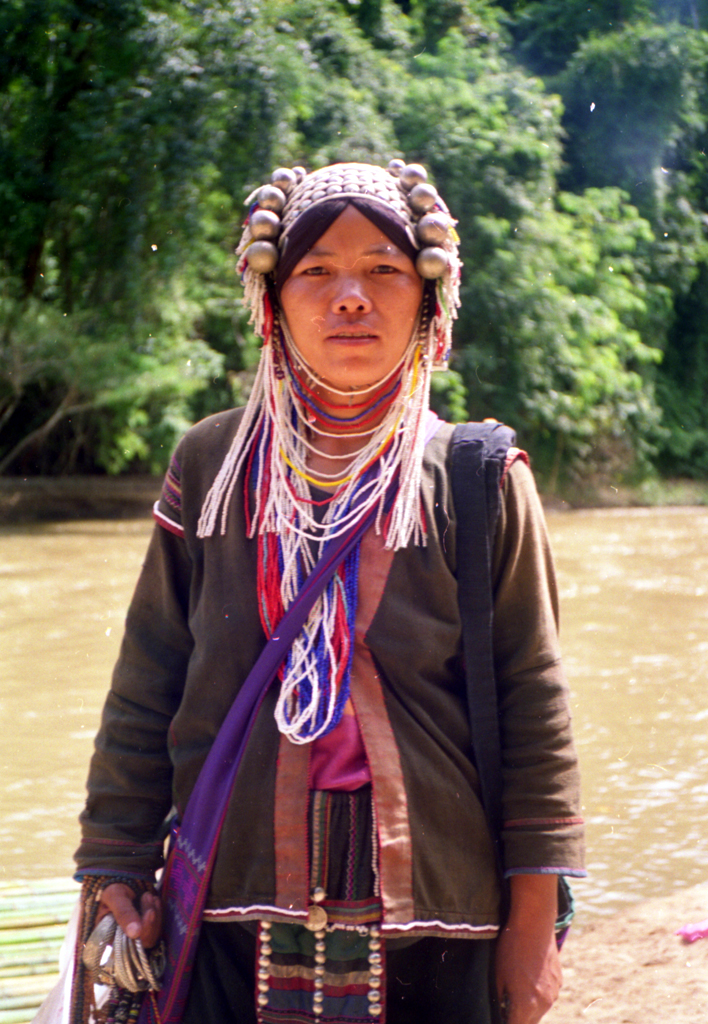Women in Thailand on:
[Wikipedia]
[Google]
[Amazon]

 Women in Thailand were among the first women in
Women in Thailand were among the first women in
Gender Statistics, Social Statistics Division, National Statistical Office, Bangkok.Women's rights situation in Thailand
/ref> and power-sharing issues with the opposite sex. It was only on 5 June 1949 that Orapin Chaiyakan became the first woman to be elected to a post in the
Female Members of Parliament, Women's Political Participation at the National Level
, Women's Political Participation in Thailand, TDRI Quarterly Review, Vol. 13, No. 4, December 1998, pp. 11-20Iwanaga, Kazuki
Women in Politics in Thailand
, Working Paper No. 14, Centre for East and South-East Asian Studies, Lund University, Sweden, 2005) The first female army officer to be elected to political office in Thailand was Lieutenant Colonel Thita Rangsitpol Manitkul, (born Thitiya Rangsitpol, 8 November 1966). She is a Thai politician and former member of the
Battered Women, No Longer Alone
Rights-Thailand, ipsnews.net, November 24, 2005 *Praparnun, Yad
Gender Sensitivity & Accountability in Thai Government Policy Formulation, Implementation & Evaluation from an Historical Perspective
Paper for presentation at the IAFFE 2009 conference in Boston, USA
{{DEFAULTSORT:Women In Thailand

 Women in Thailand were among the first women in
Women in Thailand were among the first women in Asia
Asia (, ) is one of the world's most notable geographical regions, which is either considered a continent in its own right or a subcontinent of Eurasia, which shares the continental landmass of Afro-Eurasia with Africa. Asia covers an are ...
who were granted the right to vote in 1932. They are underrepresented in Thai politics
Until 22 May 2014, the politics of Thailand were conducted within the framework of a constitutional monarchy, whereby the prime minister is the head of government and a hereditary monarch is head of state. The judiciary is independent of the ex ...
. Yingluck Shinawatra
Yingluck Shinawatra ( th, ยิ่งลักษณ์ ชินวัตร, , ; ; born 21 June 1967), nicknamed Pou ( th, ปู, , , meaning "crab"), is a Thai businesswoman, politician and a member of the Pheu Thai Party who became the P ...
, a woman, was prime minister from 2011 to 2014. Factors that affect women's participation in the socio-economic field include "inadequate gender awareness in the policy and planning process" and social stereotyping.
History and Women's movement
In the 1920s, women where allowed to study at theChulalongkorn University
Chulalongkorn University (CU, th, จุฬาลงกรณ์มหาวิทยาลัย, ), nicknamed Chula ( th, จุฬาฯ), is a public and autonomous research university in Bangkok, Thailand. The university was originally fo ...
, king Rama VI
Vajiravudh ( th, วชิราวุธ, , 1 January 188126 November 1925) was the sixth monarch of Siam under the Chakri dynasty as Rama VI. He ruled from 23 October 1910 until his death in 1925. King Vajiravudh is best known for his efforts ...
supported the new class of women (''Sao samai'') who started to dress in modern fashion and educate and support themselwes as independent professionals, and new ideals of women's liberation and equality was voiced by a new women's press such as ''Satri thai'' (1926) and ''Netnari'' (1932).
The first women's organization were charitable, the first of whom were the Red Unalom Society of Siam (later Thai Red Cross Society) in 1885, but the first women's organization for women's rights were the Women's Association of Siam founded in 1932, and the women's groups were united under the National Council of Women of Thailand (NCWT) in 1957; it was however not until the foundation of Promotion of Status of Women Group, later called Association for the Promotion of Status of Women (APSW) in 1970, that was called an actual feminist organization.
Politics
Despite the absence of legal limitations to women participating in the political arena in Thailand, the factors that have impeded the rise of women in politics include structural barriers, cultural impediments, lower educational attainments, lower socioeconomic status,Key FiguresGender Statistics, Social Statistics Division, National Statistical Office, Bangkok.Women's rights situation in Thailand
/ref> and power-sharing issues with the opposite sex. It was only on 5 June 1949 that Orapin Chaiyakan became the first woman to be elected to a post in the
National Assembly of Thailand
The National Assembly of Thailand ( Abrv: NAT; th, รัฐสภา, , ) is the bicameral legislative branch of the government of Thailand. It convenes in the Sappaya-Sapasathan, Dusit District, Bangkok.
The National Assembly was establishe ...
(specifically, the House of Representatives
House of Representatives is the name of legislative bodies in many countries and sub-national entitles. In many countries, the House of Representatives is the lower house of a bicameral legislature, with the corresponding upper house often c ...
.Sopchokchai, OrapinFemale Members of Parliament, Women's Political Participation at the National Level
, Women's Political Participation in Thailand, TDRI Quarterly Review, Vol. 13, No. 4, December 1998, pp. 11-20Iwanaga, Kazuki
Women in Politics in Thailand
, Working Paper No. 14, Centre for East and South-East Asian Studies, Lund University, Sweden, 2005) The first female army officer to be elected to political office in Thailand was Lieutenant Colonel Thita Rangsitpol Manitkul, (born Thitiya Rangsitpol, 8 November 1966). She is a Thai politician and former member of the
House of Representatives
House of Representatives is the name of legislative bodies in many countries and sub-national entitles. In many countries, the House of Representatives is the lower house of a bicameral legislature, with the corresponding upper house often c ...
who served in the House from 2001 to 2005.
Business
Thailand's female population constitutes 47% of the country's workforce, the highest percentage of working women in the Asia-Pacific region. However, these women are also confronted by hiring discrimination andgender inequality
Gender inequality is the social phenomenon in which men and women are not treated equally. The treatment may arise from distinctions regarding biology, psychology, or cultural norms prevalent in the society. Some of these distinctions are empi ...
in relation to wages due to being "concentrated in lower-paying jobs".
Marriage
According to theNational Statistical Office of Thailand
The National Statistical Office of Thailand (NSO) ( th, สำนักงานสถิติแห่งชาติ; ) is the government of Thailand's official statistics surveyor. It is an agency of the Ministry of Digital Economy and Societ ...
, female Thais marry at an earlier age than male Thais, and 24% of Thai households have women identified as "heads of households".
Thailand outlawed marital rape in 2007.
The evolution of women's rights
In Thailand, women's rights according tolabor
Labour or labor may refer to:
* Childbirth, the delivery of a baby
* Labour (human activity), or work
** Manual labour, physical work
** Wage labour, a socioeconomic relationship between a worker and an employer
** Organized labour and the la ...
laws require that men and women get paid for the amount of work they do. In 1974, Kanitha Wichiencharoen became a founder of The Association for the Promotion of the Status of Women (APSW), an association made up of both women and men, who campaigned to revise and amend laws to provide better protections for women and children. In the 1977 constitution of Thailand women were required to receive equal rights and protections. However, some inequalities remain in the law. There are no laws prohibiting women from holding office. The biggest problem for gender inequality
Gender inequality is the social phenomenon in which men and women are not treated equally. The treatment may arise from distinctions regarding biology, psychology, or cultural norms prevalent in the society. Some of these distinctions are empi ...
is when it comes domestic violence and trafficking
Smuggling is the illegal transportation of objects, substances, information or people, such as out of a house or buildings, into a prison, or across an international border, in violation of applicable laws or other regulations.
There are various ...
. Sexual harassment became illegal in 1998, but there are few reported cases and very few that are prosecuted because of the difficulties involved in proving a case. Domestic laws
Municipal law is the national, domestic, or internal law of a sovereign state and is defined in opposition to international law. Municipal law includes many levels of law: not only national law but also state, provincial, territorial, regional ...
are still to be enacted in the constitution and the requirement for evidence of domestic abuse makes it nearly impossible to prosecute. Traditionally, a girl's education took place mostly in the home, coupled with domestic chores, while boys usually went to a Buddhist
Buddhism ( , ), also known as Buddha Dharma and Dharmavinaya (), is an Indian religion or philosophical tradition based on teachings attributed to the Buddha. It originated in northern India as a -movement in the 5th century BCE, and ...
monastery
A monastery is a building or complex of buildings comprising the domestic quarters and workplaces of monastics, monks or nuns, whether living in communities or alone ( hermits). A monastery generally includes a place reserved for prayer whi ...
for education. Education overall for business and careers is lacking in Southeast Asia
Southeast Asia, also spelled South East Asia and South-East Asia, and also known as Southeastern Asia, South-eastern Asia or SEA, is the geographical south-eastern region of Asia, consisting of the regions that are situated south of mainlan ...
.Thailand Culture http://www.everyculture.com/SaTh/Thailand.html
See also
*Sex trafficking of women and children in Thailand
Sex trafficking in Thailand is human trafficking for the purpose of sexual exploitation and slavery that occurs in the Kingdom of Thailand. Thailand is a country of origin, destination, and transit for sex trafficking. Child prostitution in Thaila ...
*Thai people
Thai people ( th, ชาวไทย; '' endonym''), Central Thai people ( th, คนภาคกลาง, sou, คนใต้, ตามโพร; ''exonym and also domestically'') or Siamese ( th, ชาวสยาม; ''historical exonym an ...
* Thailand women's national handball team
*Thailand women's national rugby union team
The Thailand women's national rugby union team played their first test match against Kazakhstan in 2005.
Results summary
''(Full internationals only, updated to 24 April 2023)''
Results
Full internationals
See also
* Rugby unio ...
*Thailand women's national football team
The Thailand women's national football team ( th, ฟุตบอลหญิงทีมชาติไทย, ) represents Thailand in women's association football and is run by the Football Association of Thailand. The team won the Asian Cu ...
* Thailand national women's cricket team
* Thailand women's national volleyball team
* Violence against women in Thailand
References
Further reading
*Macan-Markar, MarwaanBattered Women, No Longer Alone
Rights-Thailand, ipsnews.net, November 24, 2005 *Praparnun, Yad
Gender Sensitivity & Accountability in Thai Government Policy Formulation, Implementation & Evaluation from an Historical Perspective
Paper for presentation at the IAFFE 2009 conference in Boston, USA
External links
{{DEFAULTSORT:Women In Thailand